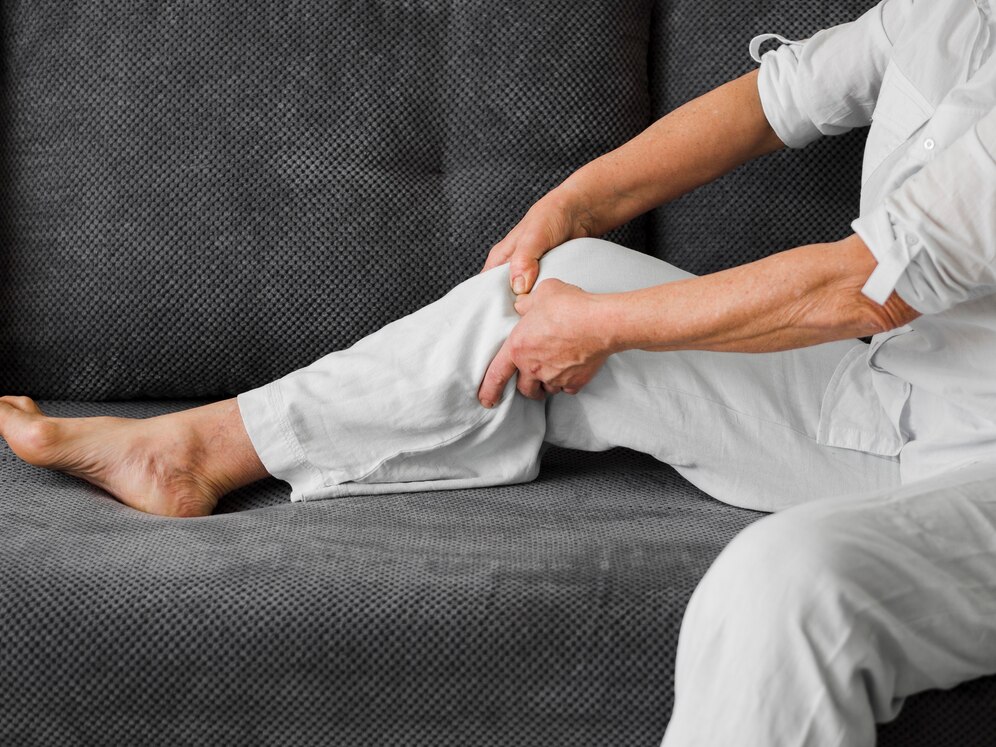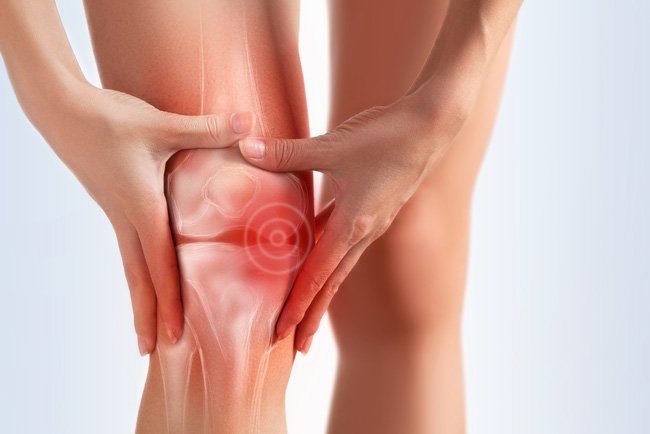Waking up with inner knee pain at night can be frustrating and disruptive. Whether it is a sharp, aching, or throbbing pain, discomfort in the inner knee while sleeping can affect your rest and overall well-being. Understanding the causes and treatments can help you find relief and improve your sleep quality.
In this article, we will explore why inner knee pain occurs at night, common causes, treatment options, and prevention tips.
Common Causes of Inner Knee Pain When Sleeping

Several factors can contribute to inner knee pain at night, ranging from injuries to medical conditions. Here are some of the most common causes
- Medial Meniscus Tear: A tear in the medial meniscus, the cartilage that cushions the knee joint, can cause pain that worsens at night. This often occurs due to twisting motions or aging-related wear and tear. Symptoms include swelling, stiffness, and knee locking or catching.
- Pes Anserine Bursitis: Pes anserine bursitis occurs when the bursa, a fluid-filled sac on the inner knee, becomes inflamed, often due to overuse or poor knee alignment. Symptoms include inner knee tenderness, swelling, and pain when bending or climbing stairs.
- Osteoarthritis: Knee osteoarthritis leads to the gradual breakdown of cartilage, causing inner knee pain, stiffness, and swelling. Pain often intensifies at night due to reduced movement and inflammation buildup. Symptoms include morning stiffness, swelling, and deep aching pain in the knee.
- Patellofemoral Pain Syndrome: This condition results from irritation of the cartilage behind the kneecap, leading to pain on the inner side of the knee. It is common in athletes and those with poor knee alignment. Symptoms include dull, aching pain, especially after prolonged sitting or bending the knee.
- Ligament Strain or Injury: Sprains or injuries to the medial collateral ligament can lead to inner knee pain, particularly at night when the knee is resting. Symptoms include swelling, tenderness, and knee instability.
- Nerve Pain or Sciatica: Pinched nerves in the lower back or sciatica can cause referred pain to the inner knee, leading to discomfort while sleeping. Symptoms include tingling, numbness, and pain radiating from the lower back to the knee.
Best Treatments for Inner Knee Pain at Night
If you experience inner knee pain when sleeping, several treatments can help relieve discomfort and promote healing.
- RICE Method: Rest by avoiding excessive strain on your knee. Apply an ice pack for fifteen to twenty minutes before bed to reduce inflammation. Use a knee brace or wrap to provide support. Keep your knee elevated with a pillow to reduce swelling.
- Pain Medications: Over-the-counter pain relievers like ibuprofen or acetaminophen can help manage discomfort and inflammation.
- Gentle Stretching and Strengthening Exercises: Strengthening the muscles around your knee can improve stability and reduce pain. Some helpful exercises include quad stretches, hamstring stretches, and leg raises.
- Adjust Your Sleeping Position: Use a pillow between your knees if sleeping on your side to reduce pressure. Try sleeping with your legs slightly elevated to ease discomfort.
- Physical Therapy: A physical therapist can recommend targeted exercises and treatments like ultrasound therapy to relieve knee pain.
- Heat Therapy: Applying a warm compress before bed can help relax the knee muscles and improve blood flow.
- Wearing a Knee Brace: A knee brace or sleeve can offer support and reduce strain while sleeping.
- Maintain a Healthy Weight: Excess weight puts added stress on your knee joints, worsening pain. Maintaining a healthy weight can reduce knee pain and improve mobility.
Also Read: Icd Knee Pain – Everything You Need to Know!
When to See a Doctor
If your inner knee pain persists or worsens, it may indicate a more serious condition. Seek medical attention if you experience severe pain that does not improve with rest and home remedies, swelling, redness, or warmth around the knee, difficulty walking or knee instability, or a popping sensation followed by swelling and pain.
FAQ’s
1. Why does my inner knee hurt more at night?
Inner knee pain worsens at night due to reduced movement, inflammation buildup, and pressure on sensitive areas while sleeping. Conditions like osteoarthritis, bursitis, or nerve compression can contribute to nighttime pain.
2. How can I relieve inner knee pain while sleeping?
Using a pillow between your knees, applying ice or heat before bed, taking pain relievers, and practicing gentle stretching can help reduce discomfort and improve sleep quality.
3. What sleeping position is best for inner knee pain?
Sleeping on your side with a pillow between your knees or on your back with a pillow under your knees can help align your joints and reduce strain on the inner knee.
4. When should I see a doctor for inner knee pain at night?
Seek medical attention if the pain persists, worsens, or is accompanied by swelling, redness, knee instability, or a popping sensation. These symptoms may indicate a more serious condition.
5. Can weight affect inner knee pain at night?
Yes, excess weight puts additional stress on the knee joints, worsening pain. Maintaining a healthy weight through a balanced diet and regular exercise can help reduce knee discomfort.
Final Thoughts
Inner knee pain while sleeping can disrupt your rest and daily life, but understanding the cause and using effective treatments can provide relief. Simple home remedies, exercises, and lifestyle changes can help you manage pain and improve your sleep quality. If your knee pain persists despite treatment, consult a doctor for a proper diagnosis and personalized care plan. A pain-free night’s sleep is possible with the right approach.
Related Post
- 7zvu187 – Decoding the Mystery Behind This Alphanumeric Code and Its Real-World Relevance!
- Teasemoonga – A New Wave of Lifestyle, Culture, and Creative Expression!
- Silktest.Org Peter HollingsWorth Contact – Everything You Need to Know!
- Best Dive Trips for Night Diving Adventures
- How to Create a Professional Booklet That Reflects Your Brand






